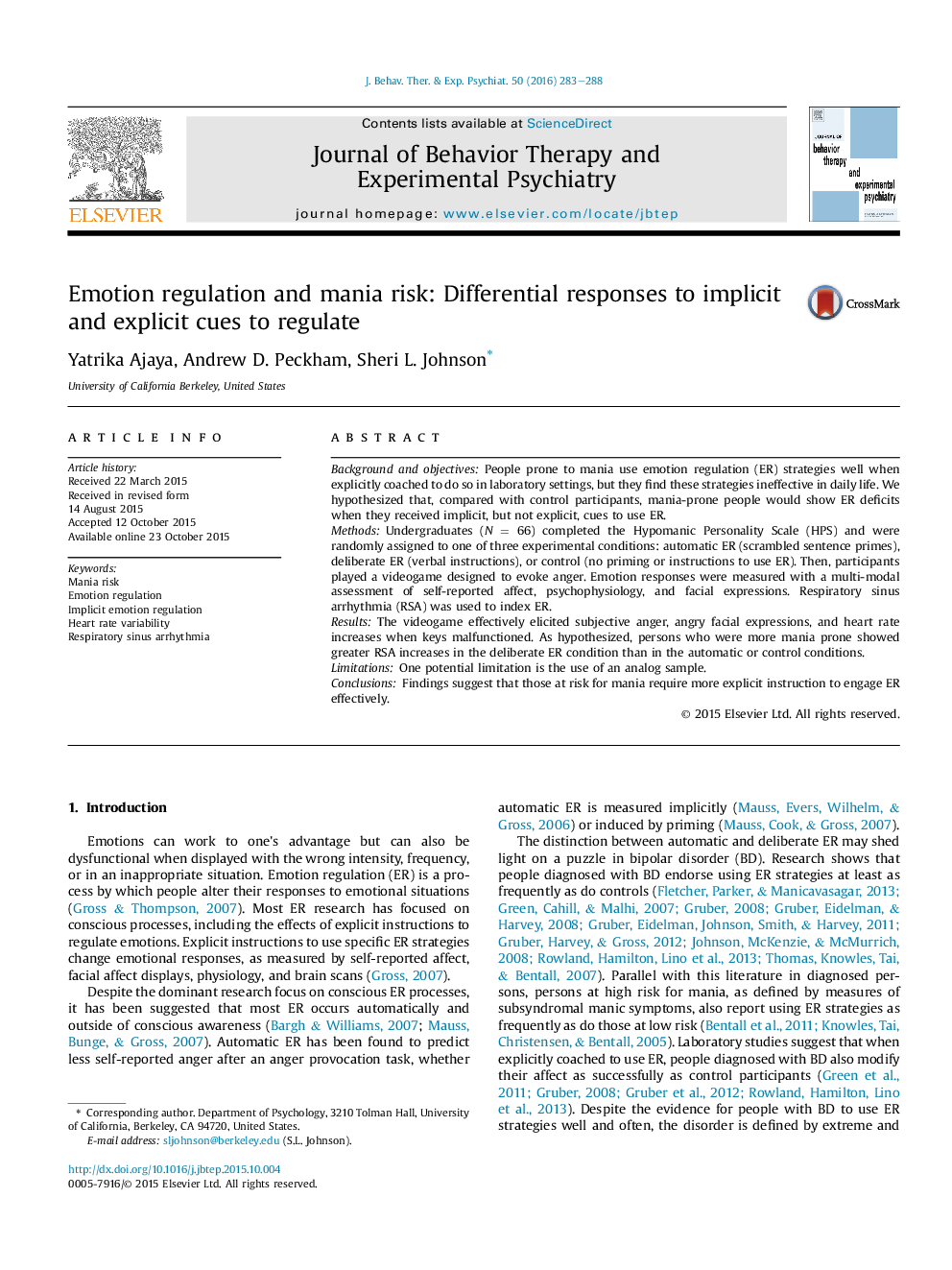| Article ID | Journal | Published Year | Pages | File Type |
|---|---|---|---|---|
| 910310 | Journal of Behavior Therapy and Experimental Psychiatry | 2016 | 6 Pages |
•A videogame procedure effectively induced anger.•Mania risk related to higher RSA after explicit, but not implicit, emotion regulation cues were provided.•Mania-prone people regulated emotions well when cued to do so, but had difficulty regulating emotions without overt cues.
Background and objectivesPeople prone to mania use emotion regulation (ER) strategies well when explicitly coached to do so in laboratory settings, but they find these strategies ineffective in daily life. We hypothesized that, compared with control participants, mania-prone people would show ER deficits when they received implicit, but not explicit, cues to use ER.MethodsUndergraduates (N = 66) completed the Hypomanic Personality Scale (HPS) and were randomly assigned to one of three experimental conditions: automatic ER (scrambled sentence primes), deliberate ER (verbal instructions), or control (no priming or instructions to use ER). Then, participants played a videogame designed to evoke anger. Emotion responses were measured with a multi-modal assessment of self-reported affect, psychophysiology, and facial expressions. Respiratory sinus arrhythmia (RSA) was used to index ER.ResultsThe videogame effectively elicited subjective anger, angry facial expressions, and heart rate increases when keys malfunctioned. As hypothesized, persons who were more mania prone showed greater RSA increases in the deliberate ER condition than in the automatic or control conditions.LimitationsOne potential limitation is the use of an analog sample.ConclusionsFindings suggest that those at risk for mania require more explicit instruction to engage ER effectively.
